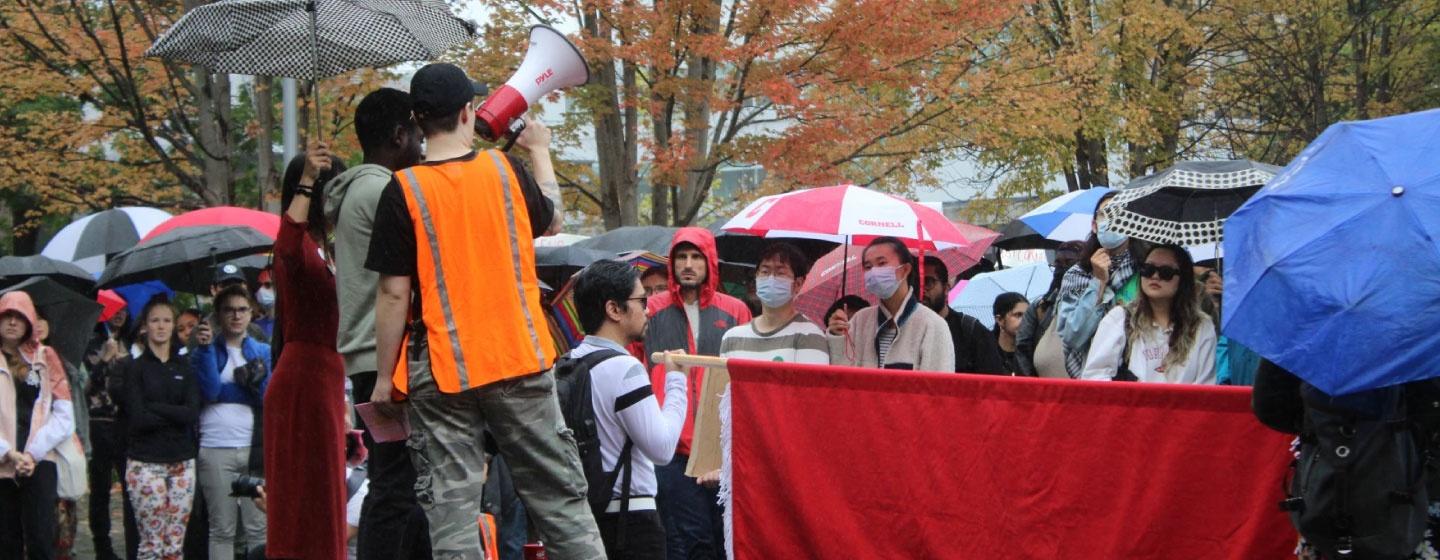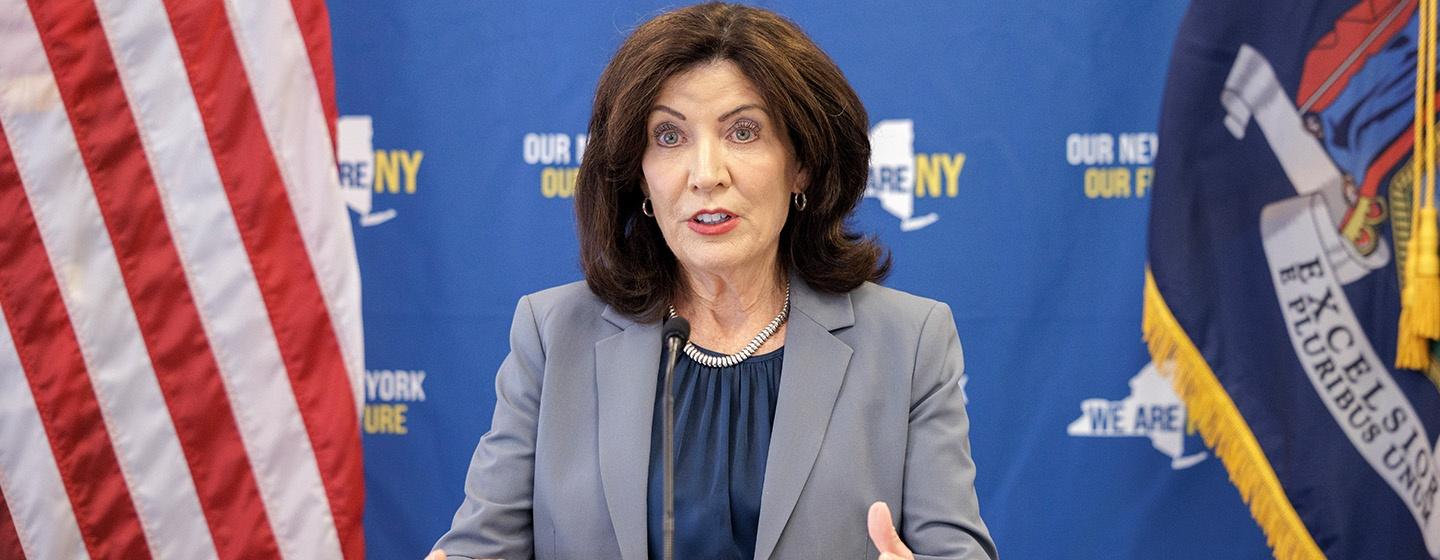Cornell Graduate Student Union Rallies Against Suspension of International Student

The union that represents graduate students at Cornell University is demanding that the institution bargain over the suspension of Momodou Taal, a British PhD student who was suspended after participating in a pro-Palestinian protest that shut down a career fair on campus.
Because Taal is an international student, his visa is linked to his enrollment at the university, meaning suspension and withdrawal from the university will force him out of the country.
Over 150 demonstrators with Cornell Graduate Students United marched to Cornell’s Day Hall on Wednesday to protest the decision, which some described as a pattern of mistreatment by their university and employer.
“Cornell wants to appoint itself judge, jury and ICE agent just when graduate workers disagree with it,” Sadie Seddon-Stettler, a union member and physics PhD student, told the crowd.
The union is currently engaged in negotiations for their first contract with Cornell and recently reached a memorandum of agreement governing graduate worker discipline until a contract is agreed upon. The agreement includes the ability to bargain on suspensions from employment.
Jenna Marvin, a bargaining member of CGSU, said that agreement was created for cases like Taal’s.
“There's a whole spate of things listed in that memorandum that Cornell has to bargain with us about if the working conditions of the graduate worker are affected. All of those conditions are met here,” she said.
Marvin said the university hasn’t allowed the union to bargain on his suspension, despite that agreement. However, the union is headed to the bargaining table to continue negotiations on their first contract next week. She said the union will continue to apply pressure leading up to that bargaining date.
“Quite frankly, people don't like having to look over their backs, around what they teach in their classroom. There is a sort of culture of fear around what is changing, what policies are changing,” Marvin said.
Barred from entering campus due to his suspension, Taal had another student read a statement at the rally.
“By suspending me, the university has not only infringed upon my individual rights, but has also set a dangerous precedent that threatens the intellectual validity of our academic community,” the statement read.
University officials have said police were pushed during last month’s pro-Palestinian protest that shut down a career fair, which featured weapons manufacturers Boeing and L3Harris. However, Taal said he didn’t engage in any violence then, or at any point during his time at Cornell.
Instead, he said, his actions at the protest were about preventing further violence in Gaza.
“My dissent as a Black Muslim is not a threat to the university, but rather a reflection of my commitment to challenging the status quo and affecting positive change,” he said in the statement.
Taal was the first known student suspended after that protest. A week later, Cornell’s interim president, Michael Kotlikoff, released a statement that said nearly 20 people had been identified as participating in the protest and were being referred for conduct violations.
Kotlikoff said the career fair protest created an “environment of intimidation and fear.”
“Preventing students from attending an ILR human resources career fair and frightening and harassing invited university guests are not peaceful means of protest,” he said.
Kotlikoff said protesters were identified using photos and videos taken during the demonstration. He added that non-student protesters would also face similar referrals.
In a prior statement, Vice President of University Relations Joel Malina encouraged Cornell community members to share information about the protest with campus police, including the identities of protesters.
Yihun Stith, a spokesperson for the Cornell Coalition for Mutual Liberation, the group leading the protests, said tensions at the university and between students are heightened. He said he believes that is because of university leadership.
“It has become a lot more divisive,” he said. “And I think that comes from the top, when you see people not managing the university correctly.”
Stith said the suspensions have shown that Cornell is not afraid to be “draconian.”
“It helps us understand kind of where the Cornell administration's mind is, and it helps us understand that the most impactful thing to them is obviously the money,” Stith said.
Stith knows of seven people who have been disciplined so far, mostly with non-academic suspensions, which still allow students to attend class.
This article was originally published on WSKG.
Related

Gov. Hochul Signs Legislation To Support Maternal Health
Governor Kathy Hochul signed three pieces of legislation that provide certain protections to pregnant people and new parents.


